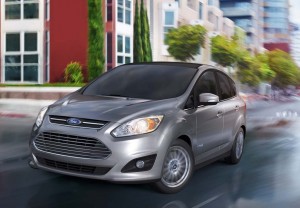A growing number of Americans are demanding not only more fuel-efficient cars but those that run on cleaner alternatives to gasoline – and they’re willing to pay, according to a pair of new studies.
That could be good news for manufacturers fretting about the cost of meeting the government’s strict new Corporate Average Fuel Economy, or CAFE, mandates requiring an average 34.5 mpg by 2016 and 54.5 mpg by 2025.
“Cost is a key issue,” especially with more radical alternatives such as electric propulsion, said Phil Murtaugh, the head of California-based Coda, a start-up in the emerging market for electric vehicles.
A study conducted for Ford Motor Co. by Penn Schoen Berland found that seven in 10 drivers are taking steps to reduce gas consumption, most reporting they are driving less and nearly half saying they’ve slowed down on the highway. Others have adopted somewhat more extreme steps, such as drafting behind larger vehicles.
Meanwhile, 21% said they have purchased a newer vehicle that is more fuel efficient.
And 25% told researchers that if they had an extra $1,000 available at the time they made their next vehicle purchase they would opt for a hybrid rather than a conventionally powered vehicle. That could signify a notable shift in consumer sentiment. Conventional wisdom has suggested motorists want greener, more fuel-efficient products but weren’t willing to pay for the necessary features to get there.
Ford is one of a growing number of manufacturers offering steadily more hybrid technology options, such as the gas-electric version of the 2013 Fusion sedan and the hybrid and plug-in versions of the new C-Max model. Toyota has promised to introduce hybrid versions of virtually every model in its line-up over the next few years and its Lexus luxury brand hints that it could have several more dedicated hybrid models coming.
A separate study by Phoenix Marketing International finds that a solid majority of American motorists are now willing to consider some form of alternative propulsion, whether hybrid, pure battery-electric or something even more radical. In fact, the vast majority of buyers under 40 see that as a real-world choice to consider, the study indicates.
Surprisingly, perhaps, the study found those in the luxury market more open to alternative propulsion, by a margin of three-to-one. In more mainstream product segments it’s still two-to-one willing to consider alternatives.
The younger the motorist the more open they are, only 10% of those under 40 not open to cleaner or more fuel-efficient powertrain technology, reports Phoenix which polled in July 1,800 consumers who were either just in the market or were still looking for a new vehicle.
“For automotive marketers that means there is immense opportunity for developing and delivering alternative fuel messaging around their brand,” said Phoenix Senior Research Analyst Kevin Severance, especially in marketing aimed at younger buyers. “As alternative fuel vehicles continue gaining popularity, cultivating and communicating an alternative fuel image will be critical. Honing related messaging will be step one in persuading consumers who are unsure about the technology to consider their products.”
Among non-luxury brands, Toyota had the most buyers inclined to consider alternative fuel vehicles, the survey revealed, followed by Ford, Honda and Chevrolet. Among luxury brands, BMW led the way, followed by Lexus, Mercedes-Benz and Audi.
The biggest challenge for the auto industry is to translate purchase interest into an actual purchase. Recent studies have repeatedly shown that shoppers will at least look at hybrids and alternatives but when it comes time to buy they largely return to conventional alternatives.
But while hybrids and other battery-based vehicles currently account for barely 3% of total new vehicle the total number of those vehicles registered during the first half of the year rose by roughly two-thirds compared to a year earlier, according to another new study by Experian Automotive.
And those who market diesels, another fuel-efficient alternative, are also reporting strong results. Volkswagen has seen demand for the diesel-powered version of its Passat sedan climb to 26% and now believes it will nudge beyond 30% once it expands capacity.
As for battery-electric vehicles, Murtaugh told TheDetroitBureau.com he expects that as consumers become more comfortable with cost and range issues he expects demand to rise, although it could take years before that technology moves into the mainstream, he acknowledged.

